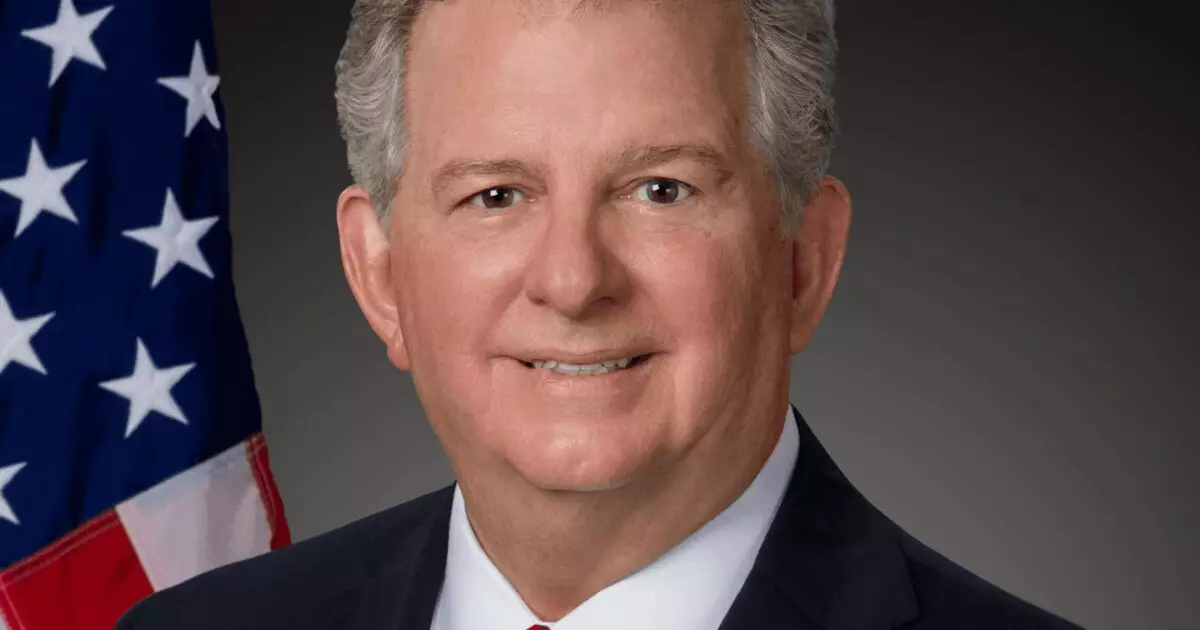Shreveport, Louisiana, a city home to approximately 178,000 residents, is treading a risky path as it prepares to issue nearly $29 million in general obligation bonds backed by questionable credit ratings. The financial landscape here is troubling, characterized by declining reserves and elevated long-term liabilities. The city has positioned itself for further borrowing, with plans to issue upwards of $168 million in new general obligations in the coming years. However, such reckless pursuit of debt raises serious concerns about fiscal sustainability and the wellbeing of the citizens who rely on these services.
The mechanics of public finance can often appear complex, but the implications of Shreveport’s financial decisions would resonate profoundly through the lives of its community members. A city grappling with a triple-B credit rating could face spiraling interest costs, which in turn, would likely lead to increased tax burdens on residents. While Mayor Tom Arceneaux insists that he will not propose budgets with reserves falling below a minimum of 7%, one must ask: how plausible is that commitment in light of the significant financial challenges looming?
The Weight of Long-term Liabilities
A more in-depth examination reveals that Shreveport is no stranger to long-term debt. With liabilities reaching a staggering 443% of fiscal 2023 revenue, the city is teetering on the edge of financial instability. The future obligations, particularly those regarding the aging sewer system necessitating reforms via federal consent decrees, add complexity to an already precarious situation. Financial analysts caution that if trends continue unchecked, future credit downgrades could be imminent, leading to even more severe fiscal ramifications for the city.
It’s critical to highlight that Shreveport has become embroiled in a political quagmire—one marked by a history of resistance to tax increases during prosperous times. This reluctance has left the city with dwindling financial reserves and a precarious infrastructure. Joseph Krist, the publisher of Muni Credit News, pointed out that the city has dragged its feet on essential repairs for over two decades, resulting in a situation that should have been remedied expeditiously but was instead bogged down by bureaucracy and indecisiveness.
A Glimmer of Hope Amidst Shadows
Yet, amidst a backdrop of declining reserves and heavy debt obligations, there are strands of hope woven into Shreveport’s financial fabric. New economic initiatives, notably the arrival of Amazon’s advanced distribution facility, introducing 1,500 jobs, offer glimmers of positivity. Equally, LSU Health’s planned investment in a $60 million cardiovascular and cancer research center exhibits an appetite for growth and development—even in a fragile economy.
Even with these developments, skepticism remains about the actual impact on city finances. While these projects aim to enhance job opportunities, would they be enough to offset the pressing financial challenges? There is an undeniable gap between potential future revenues generated by these initiatives and the immediate fiscal realities of Shreveport’s burgeoning liabilities.
The city’s leaders, including Mayor Arceneaux, have acknowledged the structural imbalances within the budget. Despite positive economic indicators, the uncertainty surrounding the city’s ability to manage expenditures effectively casts a long shadow over planned investments. The opinion from S&P Global Ratings points toward a concerning outlook—one filled with questions about sustained revenue generation and genuine fiscal responsibility.
The Responsibility of Governance
As Shreveport grapples with its financial narrative, it becomes essential to emphasize the role of governance in monetary stewardship. The city’s trajectory is about more than just numbers; it encompasses the quality of life for its residents and the integrity of its institutions. Poor financial practices not only burden taxpayers with higher rates but also impair the city’s ability to invest in vital services and infrastructure.
Mayor Arceneaux’s assertion that “maintaining reserves is a high priority” will require more than mere declarations. Will the city truly shift its approach to budgeting and fiscal planning in light of such long-standing challenges? The tendency to avoid raising taxes—especially during prosperous periods—has proven shortsighted in addressing Shreveport’s financial health. Effectively tackling issues like the sewer system’s infrastructure and public service needs will demand not only innovative financial solutions but also courageous political decisions.
In closing, Shreveport stands at a crossroads where future fiscal policy will have profound implications for its populace. As local leaders ponder the balance between growth potential and fiscal responsibility, citizens should remain vigilant and engaged, challenging the narrative pushed by those in power. Ultimately, accountability in governance and prudent financial management will be crucial to shaping a viable future for this significant Louisiana city.


Leave a Reply